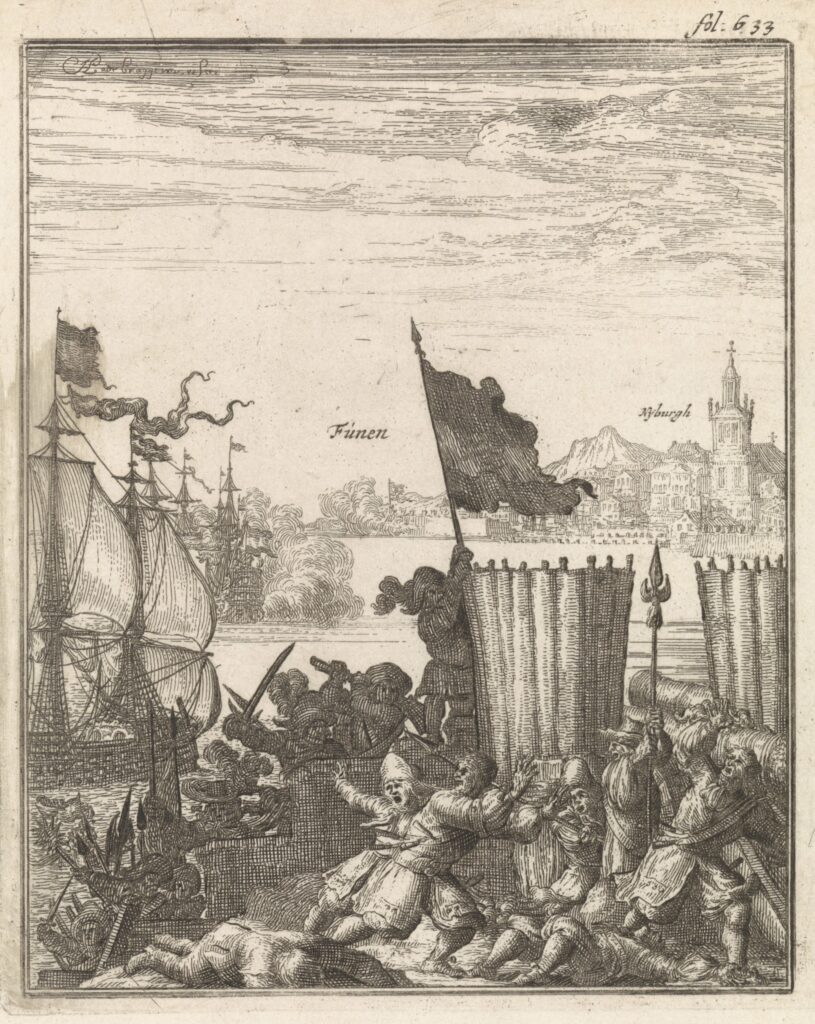Every Pole has learned about the ‘Potop’ or ‘Deluge’: the Swedish invasion of Poland, part of the Second Northern War, which started in 1655. What is less well known, however, is that the Dutch Republic played a part in that war as well. On 10 July 1656, the States-General and the representatives of Gdańsk and Poland signed a concept treaty in The Hague, which stipulated that the Dutch (together with the Danes) would come to the city’s aid in case it were attacked. The States furthermore considered offering Gdańsk financial and military assistance in the form of loans and soldiers. In turn, the Dutch demanded the same freedom of commerce as merchants from Gdańsk itself. The city’s authorities still needed to ratify the treaty, however.
In late July, a large Dutch fleet was sent to the Baltic in order to lend support to Gdańsk and put pressure on the Swedes. Meanwhile, a Dutch diplomatic delegation tried to include Gdańsk in an agreement with Sweden, which would force the town to adopt a neutral position in the conflict. As this would violate the city’s fealty to Poland, however, its officials did not approve. Moreover, they refused to ratify the concept treaty signed on 10 July. The Dutch ambassadors subsequently left Gdańsk in early October, together with the bulk of the fleet. As a final token of support, several hundred Dutch soldiers were temporarily stationed in Gdańsk. A local author thanked the Dutch with a Latin poem, expressing the hope for future cooperation.

In 1658, a Dutch fleet defeated the Swedes during the Battle of the Sound. The success prompted numerous celebratory reactions from Dutch writers and artists, who applauded the Dutch victory and deplored the sorry state of Poland, which had been ravaged by Swedish armies. One year later, in November 1659, the Poles and Dutch together with Danish and Prussian troops defeated the Swedes at the Battle of Nyborg, in Denmark. The Dutch naval force was commanded by admiral Michiel de Ruyter, while the Polish armies were led by general Stefan Czarniecki. Several poets pictured the Dutch and Poles as close allies, including the famed Joost van den Vondel, who wrote: “See how the eagles and proud lions strike their talons and claws in the heart of the Swedes.”
In 1660, the death of king Karl X Gustav of Sweden hastened the end of the Second Northern War.
*I originally wrote this post for the social media outlets of the Dutch Embassy in Poland. This was post no. 46.